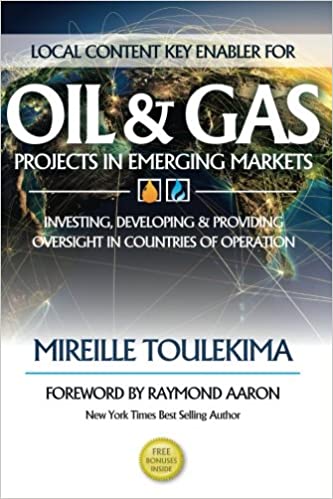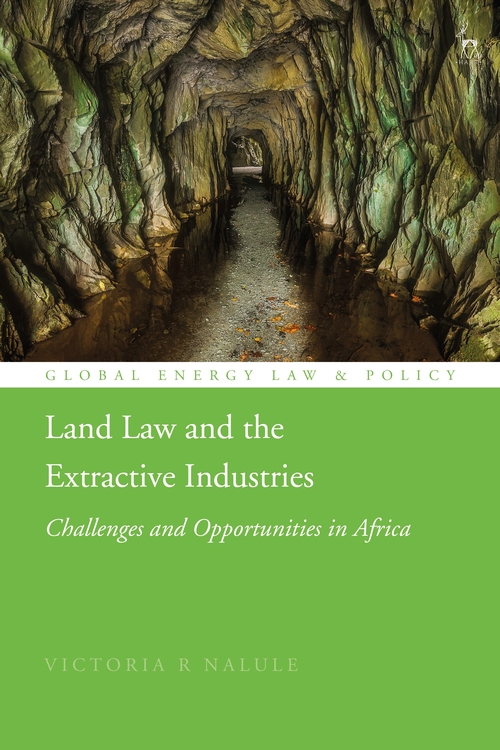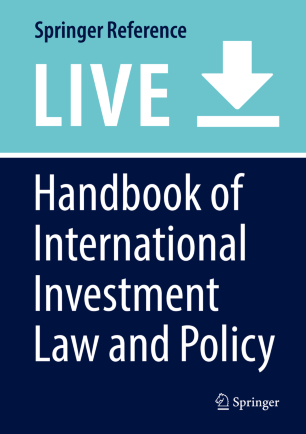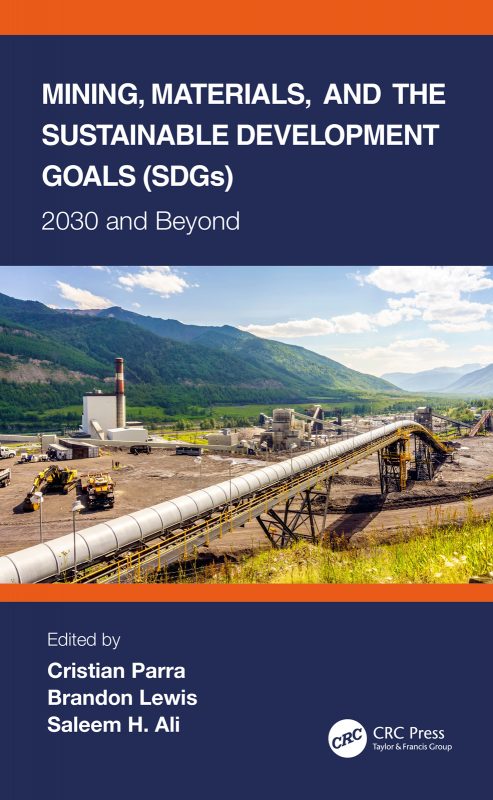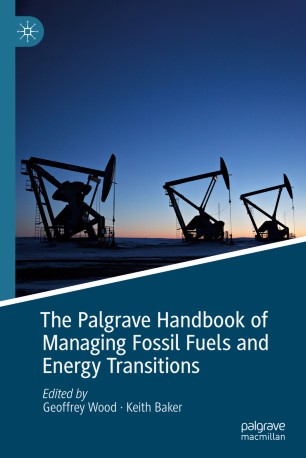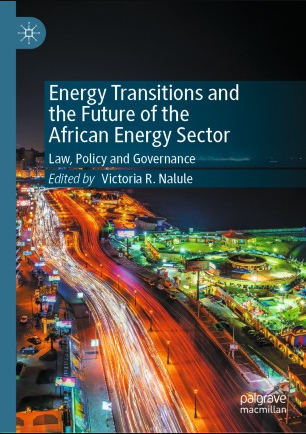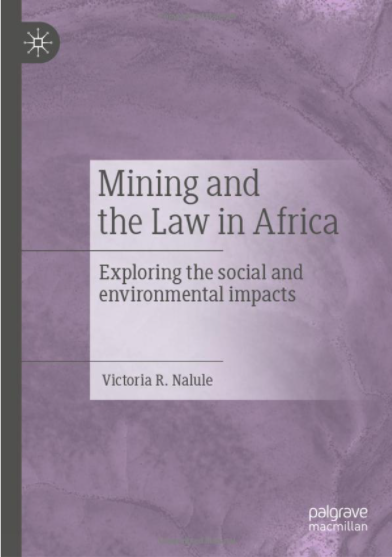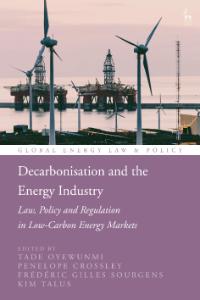Books & Research
Local Content Key Enabler For Oil & Gas Projects in Emerging Markets: Investing, Developing and Providing Oversight In Countries of Operation
For the purposes of this book, Mireille Toulekima defines local Content (LC) as the added value brought to a host nation through the activities of the oil and gas industry as collaboration between investing o&g companies and the government of the hosting country. requirements aim to create jobs, promote enterprise development and accelerate the transfer of skills and technologies. Toulekima, a long-time o&g technical advisor, has positioned herself to act as a key enabler for bringing to fruition successful LC projects in developing and emerging markets.
More info →
Land Law and the Extractive Industries
.
More info →
Multilateral and Bilateral Energy Investment Treaties
This chapter provides an analysis of bilateral, regional, and multilateral energy investment treaties. The argument is that, although investment is a major issue for energy production, in relation to the global governance of energy investments, there is no overarching regime. In fact, without access to energy, our daily lives would collapse. No truly universal investment framework exists, let alone one concerned with global investment protection in energy. What one might imagine to exist is a putative composite framework constituted by various independent elements. The international community is neither monolithic nor homogenous; it is made up of numerous states that could broadly be lumped together in different groups in relation to their economic strength and levels of industrialization/development. In that respect, the interests of least or less developed countries on the question, say, of foreign investment interests protection had, in the past, not been identical to those of the developed world. This is less the case now, following the end of the Cold War, where it appears that, whatever misgivings existed on the part of the less industrialized world about capitalist-based paths to development seem to have subsided, given that states in the less industrialized world seek to outcompete one another in their quest to attract foreign direct investment and to further integrate into the global economy.
More info →
Mining, Materials, and the Sustainable Development Goals (SDGs)
2030 and Beyond provides a systematic assessment of how the mining and materials sector contributes to the 17 sustainable development goals (SDGs) set forth by the United Nations in 2015. While the target date of 2030 is considered a benchmark for reaching these goals, the book looks beyond this date and considers a longer-term vision.
FEATURES
-
- Written by a consortium of authors from developing and developed countries
-
- Offers coverage of environmental, economic, and social dimensions of the SDGs
-
- Follows the 17 SDGs and includes a short chapter on each, followed by a case example
-
- Includes longer conceptual chapters that consider cross-cutting issues as well
Aimed at those working in minerals, mining, and materials, this work offers readers a practical vision of how these sectors can have a positive impact on meeting these vital global targets.
More info →
Transitioning to a Low Carbon Economy
The need for a global transition to a low carbon economy has gained a lot of attention in recent years following the adoption of the Paris Agreement in 2015 whose main aim is to reduce greenhouse gas emissions, thus necessitating a shift from fossil fuels to renewable energy sources. Although many developed countries especially in Europe are able to more easily shift to renewables, the question that arises is, are developing countries such as those in Africa ready for this shift? The strong correlation between economic development and energy consumption also raises the question as to how African countries can address energy poverty and access challenges while at the same time protecting the environment? Given the energy challenges and low rates of economic development in most Sub-Saharan African (SSA) countries, this chapter addresses the decarbonising efforts in Africa highlighting the challenges and way forward.
More info →
How to Respond to Energy Transitions in Africa
The world is transitioning to a low-carbon economy. How are African countries responding to this transition? The book, ‘Energy Transitions and the future of the African Energy Sector: Law, Policy and Governance’, aims at addressing the key concerns for African countries with respect to energy transitions. There have been initiatives on the African continent to embrace this transition as evidenced in not only these countries’ commitment to the 2015 Paris Agreement on Climate Change, but also various efforts in deploying renewable energy and energy efficiency technologies.
More info →
Energy Transitions and the Future of the African Energy Sector
This book explores current developments in the African energy sector and highlights how these are likely to be affected by the ongoing global efforts to transition to a low-carbon economy. It analyses the legal, regulatory and policy frameworks at the national and regional level as they relate to Energy transition in Africa and discusses how regionalism is increasingly utilized to tackle energy access and climate change challenges. Using case studies from across the continent, several key thematic issues, including gender justice, social license to operate, local content and conflict of energy laws are covered in detail. The authors also uniquely examine the progressive nature of global energy use and introduce the new concept of ‘Energy Progression.’
More info →Mining and the Law in Africa
Energy Poverty and Access Challenges in Sub-Saharan Africa
Access to modern energy is central in addressing the major global challenges of the 21st century, including poverty, climate change and famine. However large parts of the world, especially in Sub-Saharan Africa (SSA) have poor or no access to modern energy. Victoria Nalule argues that SSA countries have many common energy challenges which could be tackled with collective efforts through regional cooperation. By means of a legal and comparative analysis and a seven-step framework, the book explores the current regional mechanisms employed in Africa to address the challenge of energy poverty and access and whether they are effective in tackling the challenge of energy access, including regional energy infrastructure and regional energy regulations.
More info →Decarbonisation and the Energy Industry
This timely collection of essays examines the legal and regulatory dynamics of energy transitions in the context of emerging trends towards decarbonisation and the global increase in low-carbon energy solutions. The book explores this topicby considering the applicable energy law and policy frameworks in both:
More info →

